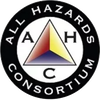|
E-ZPass Home
- Summary - Purpose - Resources Whats The Problem? - Problem Statement - Business Case - Recent Findings About E-ZPass - The E-ZPass Group - E-ZPass Members How It Works Account Types - Payment Options - Account Mgmnt How to Get Started - Operational Checklist - Adding Vehicles E-ZPass FAQs Disclaimers Contact Us: [email protected] |
PROBLEM STATEMENT
Following Hurricane Sandy in 2012, power and utility restoration became paramount across the mid-Atlantic and Northeast regions. Expediting power restoration efforts became a top priority for state and local government. As with most large storms, many states were impacted. Additionally, many non-impacted or “pass through” states had a roll in the flow of utility fleets moving through their state(s) on the way to the impacted states. During Sandy, utility crews came from many states across the country and from Canada. While there are many issues when moving fleets across state lines, toll stations quickly become an element that impact response times and effective fleet movement across state lines. Out of region fleets and vehicles did not have electronic toll systems accounts established in the E-ZPass systems and therefore had to use manual toll lanes causing long lines and delays. The problem arises in large regional, multi-state events when people and vehicles come from other states/Canada and are not familiar with the roads, people, processes, and ETC systems in the impacted state(s). For example trucks and crews coming from Florida may not be familiar with New Jersey's (NJ) and New York City’s (NYC) ETC systems, people and processes. These Florida trucks/crews rely upon their internal electric sector mutual assistance processes which coordinate through the local electric companies in NJ and NYC. This process works well but still requires coordination with many “pass through” states along the way. It is in these large multi-state events that the need for further education is needed from the regional perspective that helps both government and the private sector coordinate efforts to expedite power restoration and private sector fleet movement efforts. BUSINESS CASE
For any process to work effectively, it needs to be simple and operationally consistent. The private sector has expressed the need for a process that can work the same during normal or “blue sky” days as it does during storm or “dark sky” days. Having access to automated systems can be extremely helpful to prevent user errors and provide a more consistent operational environment. Having a seamless, interoperable ETC (electronic toll collection) system in multiple states is an effective method for moving private sector resources across state lines quickly. The benefits for these systems are many:
|
Findings:
During Sandy, it was learned that a one hour delay at a toll station in a “pass through” state(s) can start a series of cumulative impacts that delay restoration efforts by as much as 24 hours in the impacted state(s). |
- Home
-
STORM Central
- ELLIOTT DEC 2022
- Ian Sept 2022
- LANDON FEB 2022
- IZZY Jan 2022
- NICHOLAS Sep 2021
- IDA Aug 2021
- HENRI Aug 2021
- FRED Aug 2021
- ELSA July 2021
- Tabitha / Uri / Viola Feb 2021
- ETA Nov 2020
- ZETA Oct 2020
- DELTA Oct 2020
- SALLY Sept 2020
- LAURA AUG 2020
- MARCO AUG 2020
- ISAIAS July 2020
- Spring Storm April 2020
- Corona Virus March 2020
- Hurricane DORIAN Aug 2019
- Tropical Storm BARRY July 2019
- ULMER 3/14/2019
- HARPER 1/18/2019
- DIEGO 12/7/2018
- CA Wild Fires
- MICHAEL 10/7/2018
- FLORENCE 9/9/2018
- GORDAN 9/2018
- FEMA Exercise May 2018
- TOBY 3/20/2018
- QUINN 3/6/2018
- RILEY 3/3/2018
- Puerto Rico Fleet Movement
- Winter Storm 1/16/2018
- Wind Storm Oct 30 2017
- NATE 10/6/2017
- MARIA 9/20/2017
- IRMA 9/1/2017
- HARVEY 8/25/2017
- CATEX 2017 Exercise
- FEMA Exercise 5/2/2017
- STELLA 3/14/2017
- JUPITER 1/14/2017
- FORTIS 12/29/2016
- Pipeline Incident 10-31-2016
- Mathew 10/3/2016
- Pipeline 9/20/2016
- Julia 9/15/2016
- Hermine 9/1/2016
- Invest 99L 8/25/2016
- COLIN 6/7/2016
- Heat Wave/Storms 7/24/2016
- PETROS 2/25/2016
- LEXI 2/5/2016
- JONAS 1/21/2016
- JOAQUIN 10/1/2015
- Reports
- Initiatives
- Join Us
2024 All Hazards Consortium. All Rights Reserved. Privacy Statement
